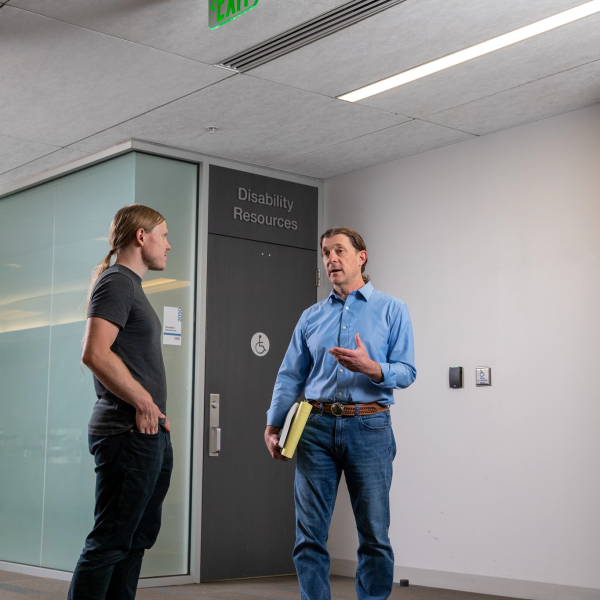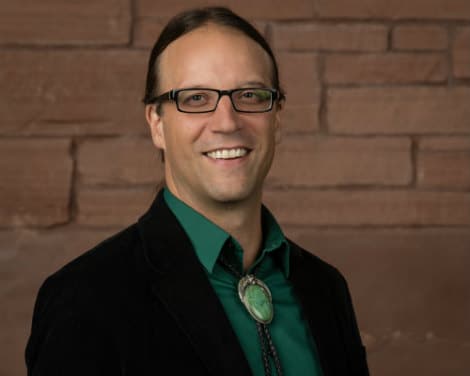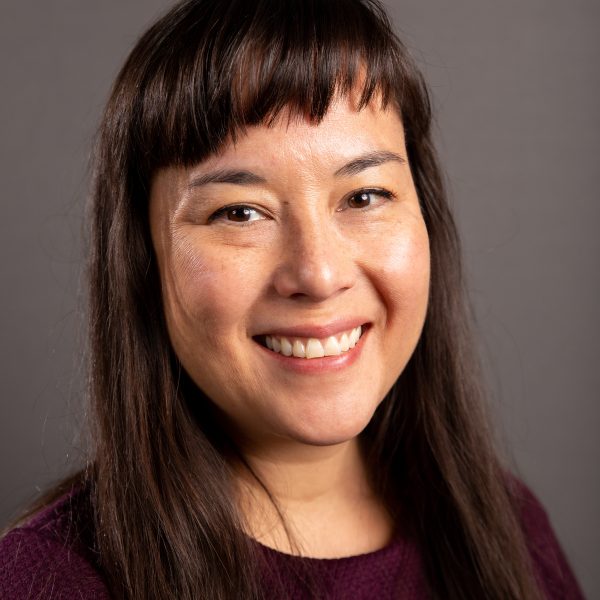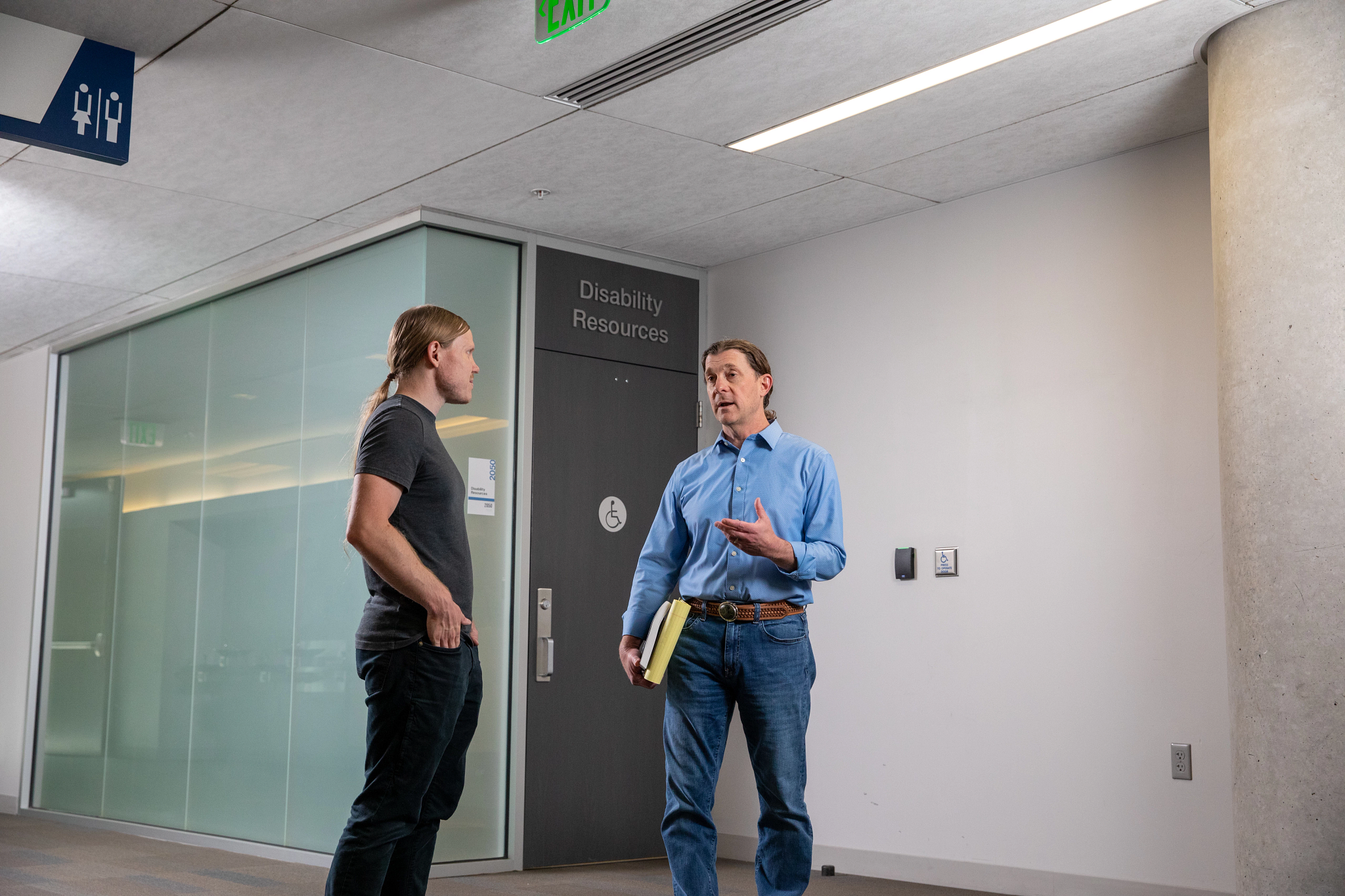
NAU launches a graduate certificate in disability resources for in-demand career positions.
NAU’s Director of Disability Resources Jamie Axelrod comes from a family of educators, and his goal for all students to achieve academic success has fueled his efforts to establish a new program.
“It is important to me to ensure that people have that opportunity to advance through education, and that starts with an opportunity to participate in an equitable way,” Axelrod said. “So, ensuring all people have access to education and ensuring that people’s educational rights in those environments are provided, that’s really an important thing.”
The Disability Resource Specialist graduate certificate, launched in fall 2020, allows students to specialize in the high-demand occupation of providing disability resources oversight for institutions. NAU’s certificate program is one of few such training opportunities available in the country.
Axelrod points out the value of the certificate: “Most people don’t get much of a grounding in the legal aspects of the work that we do—how access is achieved in a post-secondary environment for students with disabilities. Oftentimes, the people actually hiring for these positions have no idea what the office does, how it does it, or why. So, they are looking for candidates able to demonstrate they have a credential, or they have a certain level of training.”
Students can complete program coursework—typically three online, asynchronous courses at three credits each and one three-credit practicum—in one year. The in-depth curriculum covers the rewarding work involved in providing access for students with disabilities. Through the practicum, students apply the theory, knowledge, and skills required of disability resource office leaders.
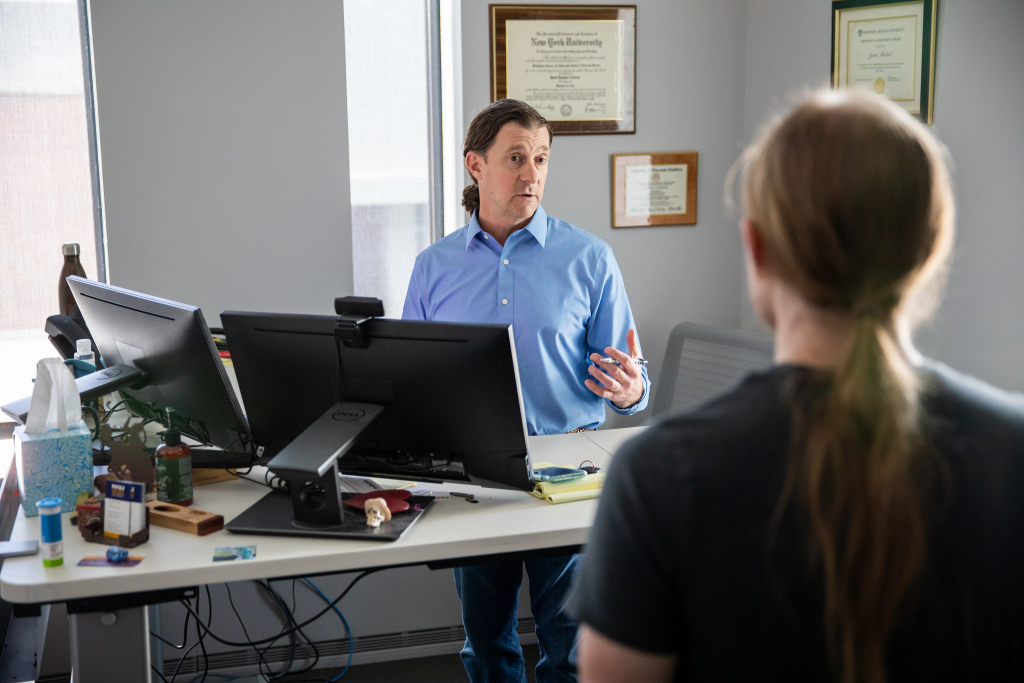
Job prospects for certified specialists are excellent
“I talked to my colleagues in California, and they have a very difficult time finding qualified people to fill the open positions they have,” Axelrod said. “People don’t come with any foundation in the work that we do. So, the idea was, how do we create a graduate-level program that can at least give people a foundational basis to hit the ground running when they get into the field?
“People with disabilities have the ability to live and function and engage in all kinds of activities, albeit they might need to do it differently,” he said. “But when we design an environment that doesn’t take into consideration the different types of people who might come with different skills and abilities, what happens is we erect barriers needlessly. It’s the intersection of that impairment with the environment that the person is trying to engage with that was designed in a way that doesn’t allow them full access.”
Axelrod believes the field is richly rewarding. Specialists collaborate with students with various disabilities to provide the accommodations they need to earn degrees that are vital to their advancement.
Without the proper access, people with disabilities are not going to become decision-makers for our society—they won’t become legislators, attorneys, doctors, or teachers.
“We’re not going to have that shared disability experience throughout society—and the voices of people with disabilities being reflected in society—if people can’t earn a degree that gets them into those fields,” said Axelrod.
Eligible students for the graduate certificate for Disabilities Resource Specialist will have completed an undergraduate degree with a GPA of 3.00 and will submit a letter of application, transcripts, and a résumé or curriculum vitae. For more information, please contact us.

